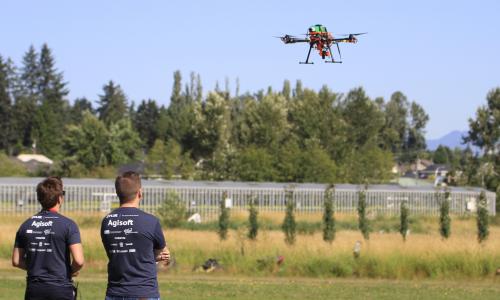
A leader is defined by their ability to motivate and propel a group of people towards a shared vision to accomplish their goals. While the traditional image of a “leader” is often of an authoritative figure standing upon a podium speaking to the masses with a booming voice, our most influential leaders are those we interact with on a personal level day-to-day. Their influence is exerted on us either willingly (such as in the case of a mentor we look up to as a role model) or indirectly (as when we are collaborating with individuals of a contrasting personality).
Finding a mentor you admire, can relate to, and who takes on an active role to support you in reaching your goals isn’t always so easy to come by. But in those instances that it does occur, a brilliant learning opportunity awaits.
For example, my supervisor at my previous co-op position quickly became one such mentor to me. In her I saw a reflection of the type of leader I envisioned myself to be as I advanced in my own career. What made this a successful mentorship relationship is that her approach in the workplace not only demonstrated success in my eyes, but also aligned with my personal values.
The qualities I most valued of her were often the most subtle—such as her tendency to initiate friendly conversation among attendees as we waited for others to dial into our phone meetings; her desire for constant self improvement (best demonstrated when she asked me, her co-op student, to complete a performance evaluation of her); and having a keen eye for recognizing a gap in need and always stepping up to the plate to fill that gap.
Although I worked closely with her, I often took a mental step back to consider what her actions spoke about the value she added to the team—and the answer was always that she was an undeniable asset.
While picking up on these tangible examples of what it takes to succeed in the workplace, I also learned another valuable lesson from my interactions with my mentor—that there exists a tremendous learning opportunity during all occasions you are working with someone.
My extremely positive working relationship had me thinking about potential situations in the future where the arrangement may be harder to bear. However, just as I was able to identify and pick up on the many positive habits of my supervisor, I believe that we also stand to learn a great deal when working alongside individuals that may clash with our own personalities.
In these less than ideal situations, we are forced to become the commander of our own learning experience and find our leadership abilities truly become tested. Just as peoples’ personalities come in all sorts of styles and colours, so do their leadership approaches. And although their style may be different from ours, they may very well still be effective in reaching their own goals. The learning outcome that results from such interactions is the self-awareness brought from being able to recognize the aspects of their leadership style that either matches or deviates from our own.
Through observation of others’ leadership styles and approaches we gain a greater awareness of what effective leadership means to us. With each interpersonal interaction we have when working towards a common goal (such as on a team, in the workplace, or school project group) our exposure to different personality types guides us in identifying which approaches are effective and naturally fit with our own preferences.
These lessons learned can then inform us on how to conduct ourselves in various settings and occasions where we work with different personality types. While an ideal mentor is someone that we look up to, there is an equal opportunity for developing our own leadership skills when we are working with a contrasting leadership style. By drawing on our previous experiences and interactions with other leaders, we are able to construct for ourselves an image of the type of leader we wish to be.
Beyond the Blog
- Here is how you can take a proactive approach to finding a mentor!















